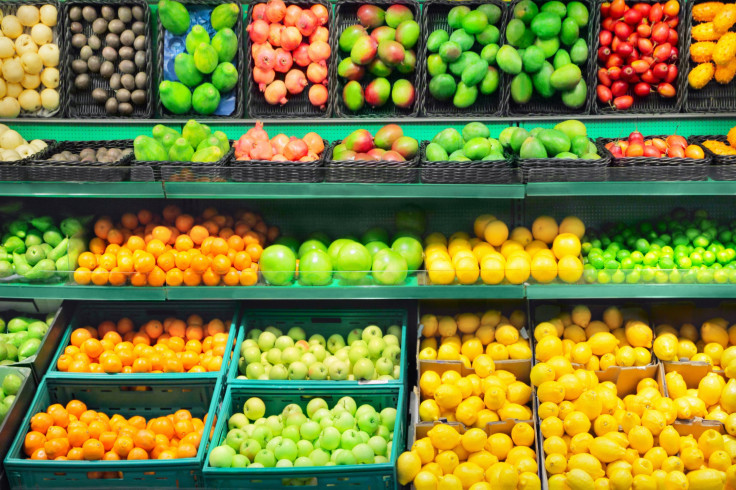‘Dirty Dozen’ Of 2014: Apples Rank As Dirtiest Foods In Produce Aisle

It’s something we don’t often think about, but there is such a thing as the “dirtiest” food in your grocery store. And according to this year’s "Dirty Dozen," an annual list produced by watchdog organization Environmental Working Group (EWG), apples have ranked as the dirtiest foods — for the fourth year in a row.
Apples are the most pesticide-covered pieces of produce, the group said. The EWG gathered pesticide residue data from the U.S. Department of Agriculture on 48 different fruits and vegetables, discovering that 65 percent of produce tested positive for pesticides. Despite the Environmental Protection Agency's (EPA) responsibility to regulate pesticides, the EWG notes that they haven't been doing that good of a job.
“Because the EPA has not complied with the Congressional mandate in full, for more than a decade EWG has published an annual guide to help people eat healthy and reduce their exposure to pesticides in produce,” the EWG wrote in their report. “Some 65 percent of thousands of produce samples analyzed by the U.S. Department of Agriculture test positive for pesticide residues. That’s bad news for the growing number of Americans who want to minimize their consumption of pesticides.”
According to the EPA, pesticides can cause health problems including nerve damage, birth defects, and cancer. Children are especially vulnerable to the adverse effects of pesticides, because their internal organs are still developing and thus easily affected. In addition, since children eat and drink more than adults do in relation to their body weight, they could possibly consume more pesticides in foods.
Every single sample of imported nectarines — and 99 percent of apple samples — tested positive for at least one pesticide. Shockingly, a single grape contained about 15 pesticides. In addition to the Dirty Dozen, the EWG announced that leafy greens were ranked as a runners up with more dangerous pesticides that don’t fit in with the others. Leafy greens can include kale and collards as well as hot peppers.
“While regulators and scientists debate these and other controversies about pesticide safety, EWG will continue drawing attention to the fruits and vegetables with the highest pesticide loads,” Sonya Lunder, senior analyst at EWG and author of the “Shopper’s Guide,” said in a statement.
Below you’ll find the full lists of dirtiest and cleanest items:
Dirty Dozen
1. Apples
2. Strawberries
3. Grapes
4. Celery
5. Peaches
6. Spinach
7. Sweet bell peppers
8. Nectarines (imported)
9. Cucumbers
10. Cherry tomatoes
11. Snap peas (imported)
12. Potatoes
Clean Fifteen
1. Avocadoes
2. Sweet corn
3. Pineapples
4. Cabbage
5. Sweet peas (frozen)
6. Onions
7. Asparagus
8. Mangoes
9. Papayas
10. Kiwis
11. Eggplant
12. Grapefruit
13. Cantaloupe
14. Cauliflower
15. Sweet potatoes
Published by Medicaldaily.com



























